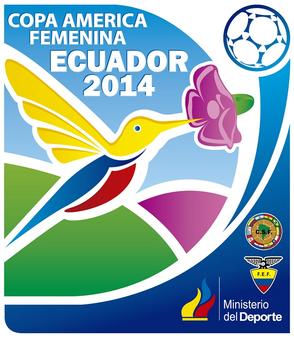The CONMEBOLCopa América, often simply called the Copa America, is the top men's quadrennial football tournament contested among national teams from South America. It is the oldest still-running continental football competition. The competition determines the champions of South America. Since the 1990s, teams from North America and Asia have also been invited to compete.

The 1919 South American Championship of Nations was the third continental championship for South American national football teams. It was held in Rio de Janeiro, Brazil from 11 to 29 May 1919.
The sixth edition of the South American Championship was scheduled to be held in Chile, but Brazil asked to host it as part of its 100th anniversary independence celebrations. Thus it was held in Rio de Janeiro between 17 September and 6 November 1922.
The 2010 Recopa Sudamericana de Clubes was a two-legged tie that determined the winner of the Recopa Sudamericana, an annual football match between the winners of the previous season's Copa Libertadores and Copa Sudamericana competitions. It was contested between Argentine club Estudiantes de La Plata and LDU Quito from Ecuador. The first leg was played on August 25 in Quito, while the second leg was played in Quilmes due to Estadio Ciudad de La Plata was undergoing renovations. Estudiantes participated in t the Recopa for their first time ever, having qualified by winning the 2009 Copa Libertadores.
The 2011 Recopa Sudamericana was the 19th edition of the Recopa Sudamericana, the football competition organized by CONMEBOL between the winners of the previous season's two major South American club tournaments, the Copa Libertadores and the Copa Sudamericana. It was contested between Brazilian club Internacional, the 2010 Copa Libertadores champion, and Argentine club Independiente, the 2010 Copa Sudamericana champion.

The 2015 Copa América was the 44th edition of the Copa América, the main international football tournament for national teams in South America, and took place in Chile between 11 June and 4 July 2015. The competition was organized by CONMEBOL, South America's football governing body.
The 2011 Copa Libertadores de América finals were the final two-legged tie that decided the winner of the 2011 Copa Libertadores de América, the 52nd edition of the Copa Libertadores de América, South America's premier international club football tournament organized by CONMEBOL. The matches were played on 15 and 22 June 2011, between Brazilian club Santos and Uruguayan club Peñarol. Santos made their fourth finals appearance and first since 2003. Peñarol made their tenth finals appearance, and first since 1987. The two teams had previously met in the finals in 1962. Santos won the cup after beating Penarol 2–1 in the second leg of the final.
The 2012 Recopa Sudamericana was the 20th edition of the Recopa Sudamericana, the football competition organized by CONMEBOL between the winners of the previous season's two major South American club tournaments, the Copa Libertadores and the Copa Sudamericana. It was contested between Brazilian club Santos, the 2011 Copa Libertadores champion, and Chilean club Universidad de Chile, the 2011 Copa Sudamericana champion.
The 2011 Copa Sudamericana finals were the final two-legged tie that decided the winner of the 2011 Copa Sudamericana, the 10th edition of the Copa Sudamericana, South America's secondary international club football tournament organized by CONMEBOL. The matches were played on 8 and 14 December 2011 between Chilean club Universidad de Chile and Ecuadorian club LDU Quito.

The 2012 Copa Sudamericana finals were the final two-legged tie that decided the winner of the 2012 Copa Sudamericana, the 11th edition of the Copa Sudamericana, South America's secondary international club football tournament organized by CONMEBOL. The matches were played on 5 and 12 December 2012 between Tigre of Argentina and São Paulo of Brazil.

The 2014 Copa América Femenina was the seventh edition of the Copa América Femenina, an association football competition for women's national teams in South America affiliated with CONMEBOL. The tournament was played between 11 and 28 September 2014 in Ecuador.

The 2014 Copa Sudamericana finals were the two-legged final that decided the winner of the 2014 Copa Sudamericana, the 13th edition of the Copa Sudamericana, South America's secondary international club football tournament organized by CONMEBOL.
The 2016 Copa Sudamericana final stages were scheduled to be played from 20 September to 7 December 2016. A total of 16 teams competed in the final stages to decide the champions of the 2016 Copa Sudamericana.

The 1937 South American Championship play-off was a match held to determine the winner of the 1937 South American Championship, the 14th edition of this continental championship, as Argentina and Brazil were tied for the first place after the regular competition. The match took place on February 1, 1937, at Estadio Gasómetro in Buenos Aires.

The 2019 Copa Libertadores final was the final match which decided the winner of the 2019 Copa Libertadores, the 60th edition of the Copa Libertadores, South American's top-tier continental club football tournament organized by CONMEBOL.

The 2021 Copa América final was a football match to determine the winners of the 2021 Copa América. The match was the 47th final of the Copa América, a quadrennial tournament contested by the men's national teams of the member associations of CONMEBOL. The match was held at Estádio do Maracanã in Rio de Janeiro, Brazil on 10 July 2021.

The 2022 Copa América Femenina was the 9th edition of the main international women's football championship in South America, the Copa América Femenina, for national teams affiliated with CONMEBOL. The competition was held in Colombia from 8 to 30 July 2022.

The 2023 Copa CONMEBOL Libertadores Femenina was the 15th edition of the CONMEBOL Libertadores Femenina, South America's premier women's club football tournament organized by CONMEBOL. The tournament was held in Colombia from 5 to 21 October 2023.

The 2021 Copa CONMEBOL Libertadores Femenina was the 13th edition of the CONMEBOL Libertadores Femenina, South America's premier women's club football tournament organized by CONMEBOL.












